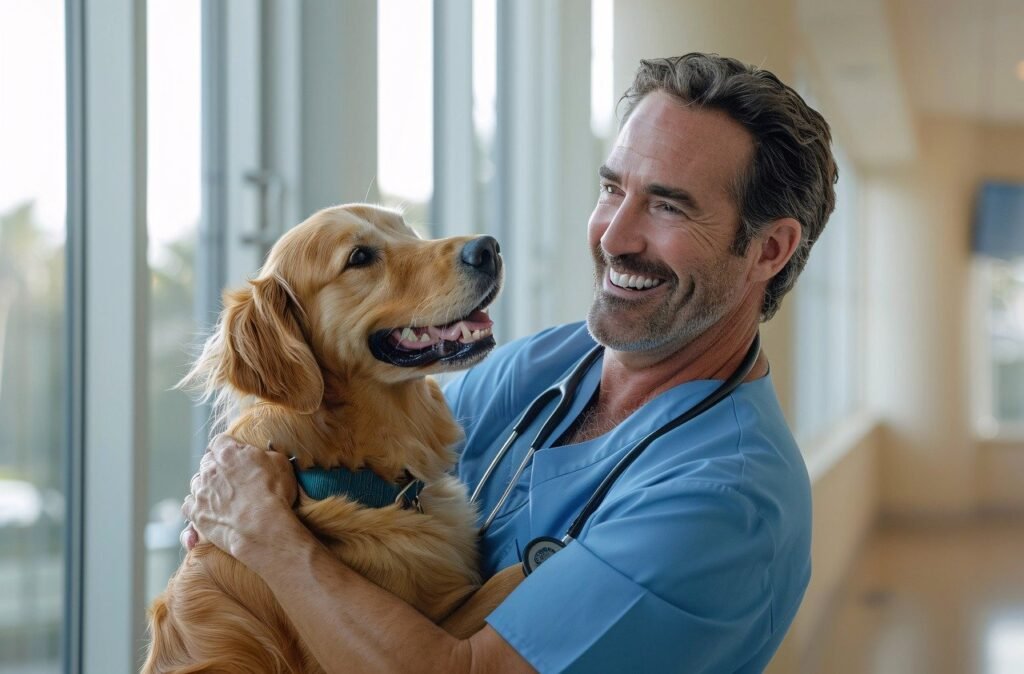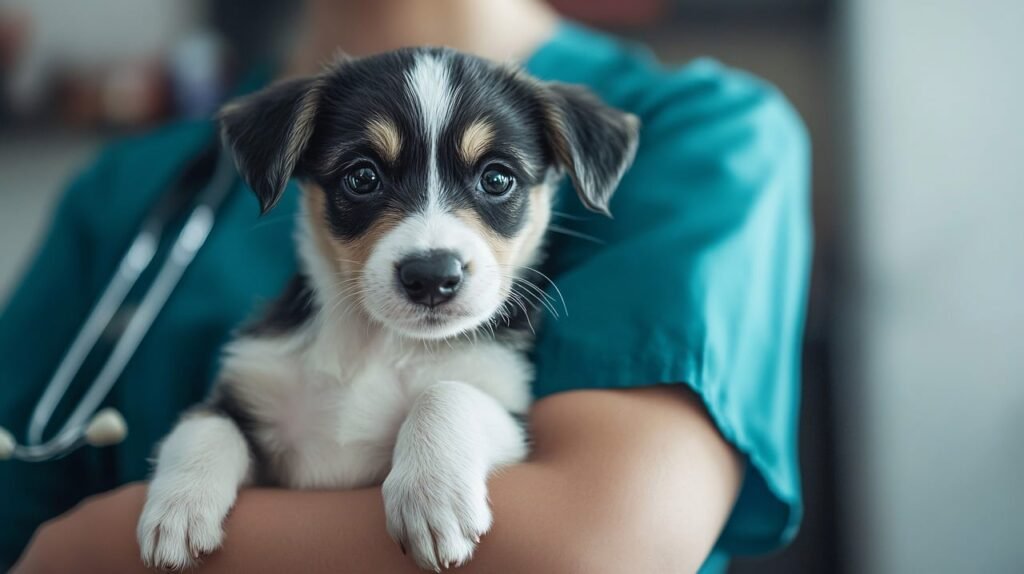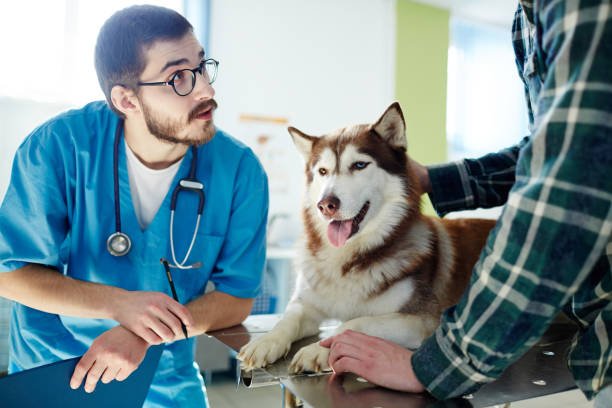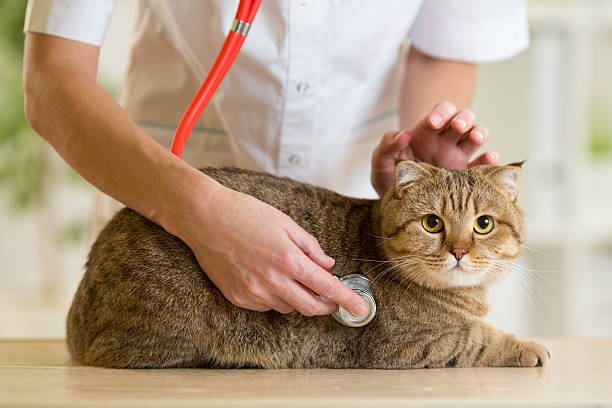As a pet owner, your furry companion’s health is likely one of your top priorities. We often shower our pets with love, nutritious food, toys, and plenty of cuddles. But one critical aspect of their well-being that sometimes gets overlooked is annual vet visits. Why annual vet visits are important for pet health comes down to detecting early signs of illness, preventing potential problems, and ensuring a longer, happier life for your pet.
Here are several reasons why annual vet visits are essential for maintaining your pet’s health.
1. Early Detection: A Key Benefit of Annual Vet Visits

One of the most important reasons for regular vet visits is the early detection of health problems. Pets, especially cats and dogs, are incredibly adept at hiding signs of illness or discomfort. They might seem completely fine, but underneath, they could be battling a condition that only a trained professional can detect.
During an annual vet visit, your veterinarian will perform a comprehensive physical examination that includes checking your pet’s weight, eyes, ears, teeth, heart, lungs, and skin. If any abnormalities are noticed, further testing can be conducted to diagnose the issue. Early detection is critical because it allows for more effective treatment and can prevent the progression of potentially life-threatening diseases such as diabetes, heart disease, or cancer.
For instance, many pets suffer from dental disease, which may go unnoticed until it becomes severe. Regular vet visits can catch early signs of dental problems, saving your pet from discomfort and more serious complications later on.
2. Keeping Vaccinations Up to Date
Vaccinations are essential for protecting your pet from harmful diseases. During an annual vet visit, your vet will review your pet’s vaccination schedule and ensure that they are up to date on all required and recommended vaccines.
Common vaccines for dogs include those for rabies, parvovirus, distemper, and kennel cough, while cats may require vaccines for feline leukemia, calicivirus, and other illnesses. Regular vaccinations not only keep your pet safe but also protect other pets in your community from contagious diseases. Some vaccinations, like rabies, are also a legal requirement in many areas, so staying on top of this is crucial for compliance.
3. Preventive Care and Parasite Control
Another vital aspect of annual vet visits is the focus on preventive care. Veterinarians are trained to not only treat diseases but also to prevent them. Your vet can recommend preventive treatments such as flea, tick, and heartworm prevention. These parasites can cause serious health problems if left unchecked, ranging from skin infections to life-threatening conditions like Lyme disease or heartworm disease.
Regular testing for parasites is also a standard part of annual vet visits, ensuring that your pet is free of any unwanted guests. Catching parasites early can prevent a whole host of issues, including infections and discomfort for your pet.
4. Monitoring Weight and Nutrition

Obesity is a common but often overlooked problem in pets, particularly in cats and dogs. Carrying extra weight can lead to a number of health issues, including joint problems, diabetes, and heart disease. During an annual visit, your vet will assess your pet’s weight and overall body condition and provide recommendations for diet or exercise adjustments if necessary.
Veterinarians can also offer expert advice on your pet’s nutritional needs. As your pet ages, their dietary requirements will change, and what may have worked for them as a young puppy or kitten might not be suitable as they grow older. A vet can guide you in selecting the right food and portion sizes for your pet’s specific needs, whether they require a special diet due to allergies, age, or health conditions.
5. Dental Health Check-ups
Dental health is another critical area that is often neglected by pet owners. Poor dental hygiene in pets can lead to periodontal disease, which affects the gums and teeth. In severe cases, untreated dental problems can cause infections that spread to vital organs such as the heart and kidneys.
During a routine vet visit, your veterinarian will check your pet’s teeth and gums to ensure they are healthy. If there are any signs of plaque buildup, gingivitis, or other dental issues, your vet may recommend a professional dental cleaning. Regular dental check-ups and cleanings can prevent painful conditions and extend your pet’s overall well-being.
6. Addressing Behavioral Concerns: Annual Vet Visits‘ Role
Behavioral problems can also be an indicator of underlying health issues. If your pet starts exhibiting unusual behaviors such as aggression, excessive barking or meowing, scratching, or changes in litter box habits, it’s worth discussing these during a vet visit. Often, behavioral changes can be linked to medical conditions like pain, anxiety, or cognitive decline, especially in older pets.
A veterinarian can help determine if the behavior is linked to a health issue and offer guidance or treatments to manage the behavior. Early intervention can make a significant difference in improving your pet’s quality of life.
7. Tailored Advice Based on Life Stage
As your pet ages, their healthcare needs will evolve. Kittens and puppies have different health requirements than adult or senior pets. Annual vet visits give you the opportunity to receive tailored advice based on your pet’s life stage. Whether it’s guidance on puppy-proofing your home, managing the high energy levels of a young dog, or addressing the special needs of a senior pet, your vet can provide valuable insights at every stage of your pet’s life.
8. Building a Strong Relationship with Your Vet
Finally, regular vet visits help you establish a strong relationship with your veterinarian. When your vet knows your pet well, they are in a better position to notice even subtle changes in their health over time. A trusting relationship also makes it easier for you to discuss concerns, ask questions and follow recommendations for your pet’s care. This partnership is key to ensuring that your pet receives the best possible medical attention throughout their life.
In Conclusion: The Importance of Annual Vet Visits

Annual vet visits are far more than just routine check-ups—they are a crucial part of maintaining your pet’s health and preventing future issues. Why annual vet visits are important for pet health becomes clear when considering early detection of illness, up-to-date vaccinations, and preventive care. By prioritizing these visits, you can ensure your pet lives a long, healthy, and happy life. Don’t wait – schedule that next vet appointment today!




